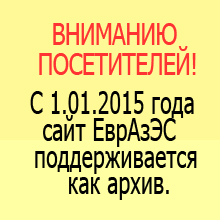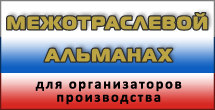|
AGREEMENT AGREEMENT on the Сustoms union between the Russian Federation and the Republic of Belarus of 6 January 19951 AGREEMENT on the Сustoms union between the and the
of 6 January 19951
The Government of the Russian Federation and the Government of the Republic of Belarus, hereinafter referred to as the Contracting Parties, striving to further promote sustainable and mutually beneficial economic relations; willing to ensure further development of the rights and freedoms of an individual and citizen based on the democratic principles set forth in United Nations documents; recognizing international generally accepted norms in economic relations and being guided by GATT/WTO rules; confirming their adherence to the free development of economic cooperation; intending to proceed with implementation of the provisions hereof, concerning establishment of an Economic Union through a switch to the gradual formation of a customs union; following Article 4 hereof concerning establishment of the Economic Union and providing for elaboration of a complex of interrelated measures to be undertaken in accordance with individual agreements for each form of integration; stating the achievement of certain results under the Agreement entered into by and between the Government of the Russian Federation and the Government of the Republic of Belarus on the Uniform Regulation of Foreign Economic Activity concluded on April 12, 1994 (Moscow); aiming to define the rights and obligations of the Contracting Parties in the gradual formation of the customs union; have agreed as follows:
Article 1 Objectives and Principles of the Customs union functioning
1. The Contracting Parties declare the following objectives of the Сustoms union establishment – to cooperatively ensure social and economic progress in their countries by removing obstacles to achieving free economic cooperation between the economic entities; – to guarantee a sustainable growth of the economy, free exchange of goods and fair competition; – to reinforce the harmonization of economic policies in their countries and to ensure comprehensive development of their national economies; – to set up an environment to establish a common economic space; – to set up an environment to help the Сustoms union member states confidently enter the global market. 2. The Contracting Parties define the Сustoms union as an economic union of the states based on the following principles: a) a common customs territory of the Сustoms union member states, with the common customs territory to be established by, as follows: – removing the customs duties, taxes and levies of equivalent effect, as well as quotas, on the trade of goods originating from the territories of the Contracting Parties' states; establishing and applying to third countries an equal trade regime, equal customs duties and measures for non-tariff regulation of foreign trade; – developing a cooperation mechanism of the Сustoms union with third countries and international organizations, in accordance with provisions of the Agreement entered into by and between the Government of the Russian Federation and the Government of the Republic of Belarus on the Uniform Regulation of Foreign Economic Activity concluded on April 12, 1994; b) uniform economy regulation mechanisms based on the market principles of economics and unified laws.
Article 2 Mechanics and stages of the Сustoms union establishment
1. The Contracting Parties shall undertake a set of interrelated measures to form a customs union, including the following compulsory elements: 1.1. First stage. Practical application of the mechanics of the Agreement on Establishment of the Free Trade Area of April 15, 1994, and, primarily, revoking trade tariffs and quota in accordance with the Protocol on the introduction of a free trade regime without exceptions and restrictions between the Russian Federation and the Republic of Belarus of January 6, 1995, which constitutes an integral part hereof. The trade restrictions will be removed in conformity with the Agreement entered into by and between the Government of the Russian Federation and the Government of the Republic of Belarus on Uniform Regulation of Foreign Economic Activity concluded on April 12, 1994 and the development of a completely identical system for the regulation of foreign economic relations (including tariff and non-tariff regulation), as well as the establishment of a uniform trade regime, common customs tariffs and non-tariff regulation measures in respect of third countries. 1.2. Unification within 4 months from the date of signing hereof of foreign trade, customs, currency and financial, tax and other laws governing foreign trade activity and, in particular, concerning: – economic environment, based on market principles which provide for equal opportunities and guarantees for economic entities of the states of Contracting Parties; – pricing policy; – currency regulation and currency control; – export control; – unfair competition and restrictive business practices; – intellectual property. 1.3. Development of a cooperation mechanism of the Сustoms union with third countries and international organizations through delegation of the respective powers of any of the Contracting Parties. 2. The Contracting Parties make arrangements to harmonies national laws governing economic activities. The Contracting Parties undertake to provide each other with applicable regulations, to assist in clarification and elaboration of provisions thereof concerning reforms in national economies. 3. The Contracting Parties make arrangements to exercise control over law enforcement practices and ensure conformity in realization of the following methods: – establishing reliable mechanisms of control over preventing the unauthorized re-export of goods to third countries; – effecting payment and settlements for trade and non-trade transactions on a bilateral and multilateral basis; – applying regulations over foreign economic relations in respect of third countries; – converging the economic environment; – keeping customs statistics of foreign trade; – exercising reliable customs control at the foreign customs borders of the states of Contracting Parties; 4. Second stage. Following all measures envisaged by the first stage, integration of the customs territories of the states of Contracting Parties as a common customs territory, the issue of international legal standing of the Сustoms union and existing international treaties is to be addressed. 5. The Contracting Parties apply Fundamentals of customs laws of the member states of the Commonwealth of Independent States approved by the Council of Heads of the Commonwealth on December 10, 1994. 6. The Contracting Parties apply a Unified methodology of foreign trade customs statistics of the Commonwealth of Independent States member states approved by the Council of Heads of the Commonwealth on December 10, 1994. 7. The Contracting Parties apply the Rules to identify the country of origin of goods approved by the Council of Heads of the Commonwealth on September 24, 1993, as further amended. 8. The Contracting Parties apply an Agreement on re-export of goods and procedures for issuance of re-export permits concluded in Moscow on April 15, 1994. 9. The Contracting Parties, as they perform the Agreement, may by mutual consent introduce elaborations in the content and schedules of certain measures for the stages stipulated herein.
Article 3 Customs union formation procedures
To set up the Сustoms union, the Contracting Parties shall apply a principle of bilateral and (or) multilateral consultations on issues arising from objectives, principles, terms and conditions, and stages of the Сustoms union.
Article 4 Distribution of customs duties, taxes and levies of equivalent effect
1. Import customs duties, taxes and levies of equivalent effect imposed on goods originating from third country territory are contributed to the state budget of the Contracting Party which is a country of destination. 2. Export customs duties, taxes and levies of equivalent effect imposed on goods originating from third country territory and exported from the territory of any Contracting Party to the territory of the other Contracting Party are contributed to the state budget of the Contracting Party from whose territory the goods are exported. 3. Export customs duties, taxes and levies of equivalent effect imposed on goods exported from the territory of a Contracting party to a third country shall be distributed as follows: a) in respect of goods originating from the territory of any Contracting Party, in the context of the provisions of subparagraph b) clause 3 hereof, they shall be contributed to the state budget of the Contracting Party which is the country of origin; b) in respect of goods manufactured in the territory of any Contracting Party out of raw materials and (or) materials originating from the territory of the other Contracting Party, they shall be contributed to the state budgets of Contracting Parties in accordance with the coordinated distribution of export customs duties; c) in respect of goods originating from the territory of a third country, they shall be contributed to the state budget of the Contracting Party from whose territory the goods are exported. 4. The Contracting Parties agree on the offset of customs duties, taxes and levies of equivalent effect.
Article 5 Introduction of temporary restrictions
1. Temporary restrictions on mutual trade by using tariffs, quota or any other equal measures may only be imposed in the following cases: acute deficit of certain goods on domestic market – until the market is stable; acute deficit in the balance of payments – until the balance of payments if stable; if any goods are imported in the territory by any Contracting Party in such increased quantities and on such terms and conditions that damage or threaten domestic producers of similar or directly competitive goods. 2. Before any restrictive measures taken in cases when there is a need in such restrictions, the Contracting Parties shall provide each other with respective information for consultations. Consultations aimed at finding a solution acceptable for the Contracting Parties shall be conducted as soon as practicable. 3. If as a result of such consultations, the Contracting Parties, within 45 days from the date of receipt of respective information, fail to arrive at consensus with respect of measures to be taken to remove the situation, the Contracting Party which requested the consultation will be free to introduce restrictive measures to such extent and for such term that is necessary to prevent or prevent the damage. 4. Under emergency conditions, when a delay may cause damage which will be difficult to prevent, the Contracting Parties may take measures specified herein before such consultations are held, provided these are held immediately after such measures. 5. Temporary restrictions imposed on import and export from the moment of their receipt by any Contracting Party should be communicated to the other Contracting Party as soon as practicable. 6. The Contracting Parties shall proceed with harmonization of regulations and laws to avoid conditions which give grounds for introducing tariffs and (or) a quota in mutual trade. 7. The Contracting Parties shall exercise control over export (import) of quota and license goods.
Article 6 Customs Control
1. The Contracting Parties shall secure uniform management of their customs services under the respective Agreement entered into by and between the Government of the Russian Federation and the Government of the Republic of Belarus. 2. Taking into account the provisions of para 1 hereof, the Contracting Parties shall: – arrange joint control over movement of goods and means of transport. Procedure and arrangement of such control will follow certain agreements (protocols) between customs bodies of Contracting Parties. – abandon customs clearance at common borders provided there is completely reliable customs clearance at their external borders.
Article 7 Exceptions
This Agreement shall not affect the right of any Contracting Party to undertake measures in accordance with international and national laws required to ensure national security, public order, health or morals of the citizens, cultural and historical heritage of their nations or protection of rare animals and plants.
Article 8 Final provisions
1. Any disputes and discrepancies arising between the Contracting Parties in respect of interpretation and (or) application of the provisions hereof shall be resolved through consultations. 2. This Agreement shall not affect any other international treaties which were formed by the Contracting Parties and do not contradict the Agreement; the Contracting Parties, if required, undertake to bring these into line herewith; 3. Any Contracting Party may withdraw from its participation herein by giving not less than twelve months’ notice of its intention to denounce the Agreement to the other Contracting Party. 4. This Agreement shall temporarily operate from the moment of signing and shall come into force from the date of exchange for notices of accomplishment of the required internal procedures by the Contracting Parties. 5. This Agreement is open for accession by any Commonwealth of Independent States member state which acknowledges provisions hereof effective from the moment of accession and willing to fulfill those to the fullest extent. Accession is made by the consent of the Contracting Parties pursuant to the terms and procedures set forth in an individual agreement to be formed with the acceding state.
Done at
For the Government of the
For the Government of the
|
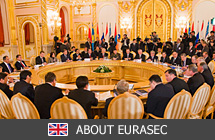
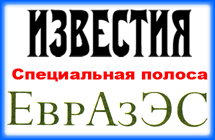
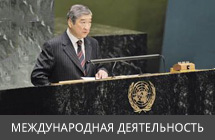
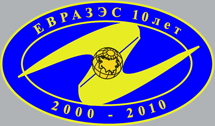
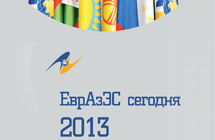
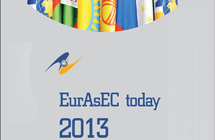
Поиск 10.10.2014 Заседание Межгосударственного совета ЕврАзЭС07.10.2014 Мультимедийная пресс-конференция в агентстве «Россия сегодня»03.10.2014 Встреча с Послом Финляндской Республики04.08.2014 Встреча Генерального секретаря ЕврАзЭС с Послом Республики Таджикистан20.06.2014 Премии Петербургского международного юридического форума «За вклад в развитие правовой интеграции на евразийском пространстве»28.05.2014 Договор о Евразийском экономическом союзе – важнейшее событие в новейшей истории наших стран25.05.2014 Презентация книги «Евразийский проект Нурсултана Назарбаева, воплощенный в жизнь. К 20-летию евразийского проекта 1994–2014»24.05.2014 VII АСТАНИНСКИЙ ЭКОНОМИЧЕСКИЙ ФОРУМ. Панельная сессия «Евразийской экономической интеграции – 20 лет. Итоги и перспективы»24.05.2014 VII Астанинский экономический форум и II Всемирная Антикризисная конференция, 21-23 мая 2014 года, Астана24.05.2014 Петербургский международный экономический форум, 23 – 24 мая 2014 года, Санкт-Петербург |

Евразийское экономическое сообщество
ЕврАзЭС
-
Страны участники
 Беларусь
Беларусь
-
 Казахстан
Казахстан
-
 Кыргызстан
Кыргызстан
-
 Россия
Россия
-
 Таджикистан
Таджикистан
-
 Узбекистан
Узбекистан
-
 Молдова
Молдова
-
 Украина
Украина



